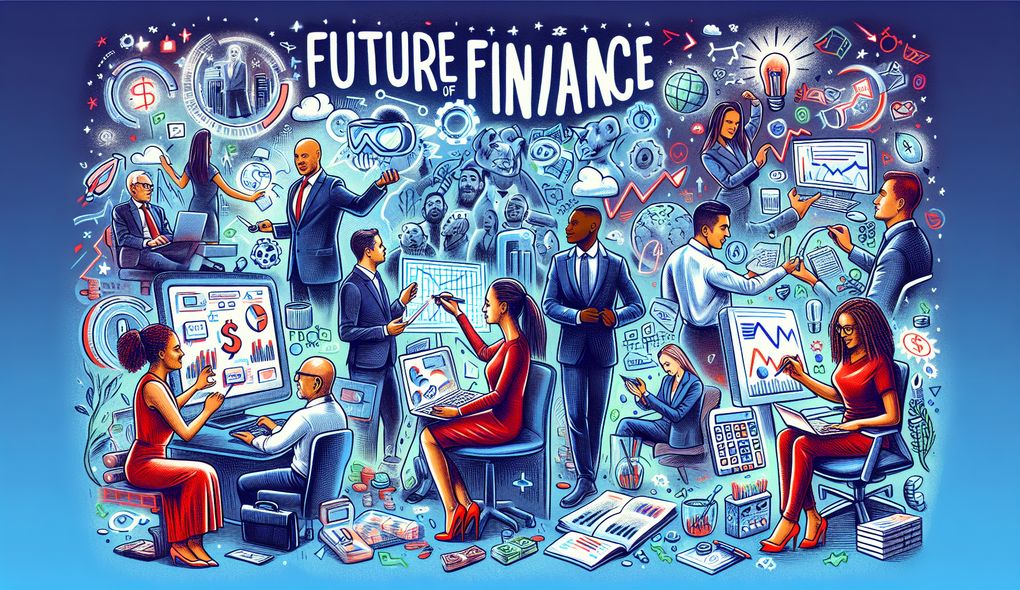Personal finance is evolving rapidly, driven by technological advancements, changing consumer behavior, and a shifting economic landscape. As we move forward, staying ahead of emerging trends in personal finance can help individuals make informed decisions, optimize their financial strategies, and achieve long-term financial security. Here are the key trends to watch in the future of personal finance.
1. Rise of Digital Banking and Fintech Innovations
Digital banking and fintech solutions are transforming how people manage their money. Traditional banks are increasingly offering digital services, while fintech startups provide innovative alternatives, such as mobile-only banks, peer-to-peer lending, and digital wallets. These platforms offer convenience, speed, and low-cost services, allowing users to manage their finances on the go.
Consumers can expect more AI-powered tools, personalized financial recommendations, and seamless digital experiences as fintech continues to grow. For example, robo-advisors are becoming more sophisticated, providing automated investment management and personalized advice based on individual risk profiles.
2. Increased Focus on Financial Wellness and Education
Financial wellness is gaining traction as more people realize the importance of managing money wisely to achieve a balanced and stress-free life. Employers are offering financial wellness programs to help employees manage debt, save for retirement, and plan for emergencies. Additionally, online platforms and apps are providing access to financial education resources, enabling individuals to improve their financial literacy.
As financial literacy becomes a priority, expect to see more tools and platforms designed to educate people on topics like budgeting, investing, and credit management. This trend is empowering consumers to take control of their finances and make more informed decisions.
3. The Growing Role of Artificial Intelligence and Machine Learning
Artificial intelligence (AI) and machine learning are revolutionizing personal finance by enabling more accurate data analysis and personalized financial services. AI-powered tools can analyze spending patterns, predict future expenses, and provide tailored financial advice. This technology helps users make better decisions, optimize their savings, and manage investments more effectively.
Machine learning algorithms are also improving fraud detection and cybersecurity measures, making online transactions safer and more secure. As AI continues to advance, we can expect even more innovative applications in personal finance.
4. Sustainability and Ethical Investing on the Rise
Sustainability and ethical investing are becoming mainstream as more investors seek to align their financial goals with their values. Environmental, Social, and Governance (ESG) criteria are now central to many investment strategies, with individuals looking for companies that prioritize sustainability, ethical practices, and social responsibility.
The trend of ESG investing is likely to grow as awareness of climate change, social issues, and corporate governance continues to rise. Financial institutions are offering more ESG-focused products, and investors are increasingly considering the impact of their investments on society and the environment.
5. Rise of Decentralized Finance (DeFi) and Cryptocurrency
Decentralized Finance (DeFi) and cryptocurrencies are disrupting the traditional financial ecosystem by offering decentralized alternatives to banking, lending, and investing. DeFi platforms allow users to borrow, lend, and trade assets without intermediaries like banks, providing greater access and control over financial activities.
Cryptocurrencies like Bitcoin and Ethereum have gained mainstream attention as alternative investment options, and blockchain technology continues to open new possibilities for transparency and security in transactions. As DeFi and cryptocurrency adoption grows, we may see more integration with traditional financial services.
6. Personalization of Financial Services
The demand for personalized financial services is increasing, as consumers seek tailored solutions that meet their specific needs and preferences. Financial institutions and fintech companies are leveraging data analytics and AI to create customized financial products and services, such as personalized budgeting tools, savings plans, and investment strategies.
Expect to see more companies using data-driven insights to provide a more personalized user experience, which could help consumers achieve their financial goals more effectively and efficiently.
7. Increased Adoption of Cashless Payments
The shift towards cashless payments is accelerating, driven by technological advancements and changing consumer behavior. Digital wallets, contactless payments, and mobile payment apps are becoming the norm, reducing the need for cash transactions. This trend is expected to continue, with innovations in payment technology making transactions faster, safer, and more convenient.
The future may see the rise of biometric payments, such as facial recognition or fingerprint scanning, further enhancing security and ease of use for consumers.
8. Emphasis on Emergency Savings and Financial Resilience
The recent economic uncertainties have underscored the importance of emergency savings and financial resilience. More people are recognizing the need to build a robust financial safety net to protect against unexpected expenses, job loss, or economic downturns. This trend is likely to drive increased adoption of savings accounts, high-yield savings options, and automatic savings tools.
Financial institutions are responding by offering products that encourage regular savings and provide easy access to funds in emergencies.
Conclusion
The future of personal finance is shaped by digital innovation, increased personalization, and a growing focus on sustainability and financial wellness. Staying informed about these emerging trends can help you navigate the evolving financial landscape and make smart decisions that align with your goals. As technology continues to advance and consumer preferences shift, those who adapt to these changes will be best positioned to achieve financial success.








